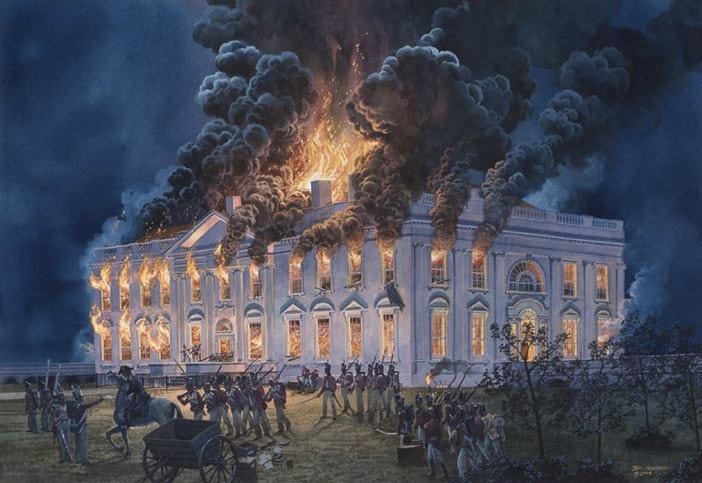Other People's Property
The risks & rewards inherent in renting and owning

“How can you build on such a quicksand?” — Arthur Conan Doyle, 1904
The White House, sometimes called “The People’s House,” is the most well-known piece of public housing in the world.
And it’s a powerful reminder that we don’t always control where we live or do business.
Every four or eight years, the occupant of the White House is required to move out. And just like that, the permanent staff goes into a whirl to prepare the residence for a new president.
It was 214 years ago this week — on August 24, 1814 — that the British army, laying siege to Washington, DC, set the White House on fire.
It seems apt timing then, that late last week, OnlyFans made an announcement that rocked the world of creators. The site, known as a platform for those who create a variety of sexual content for their fans and viewers, abruptly announced they would ban explicit content.
S…



